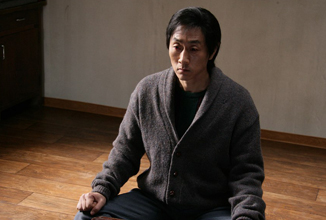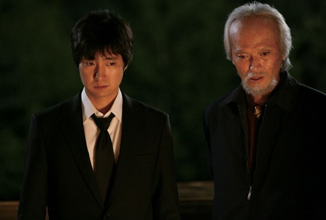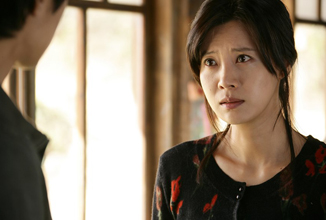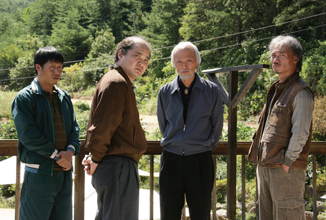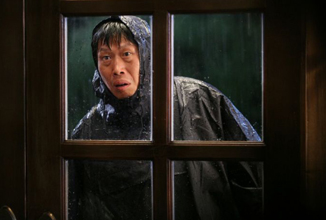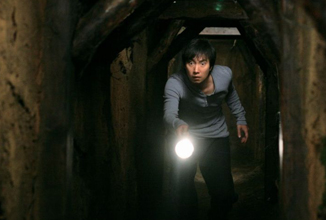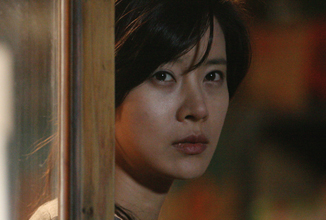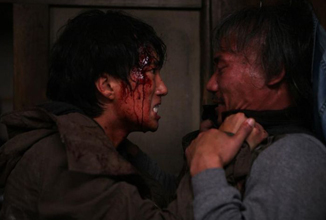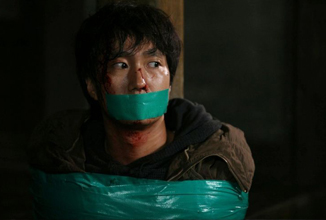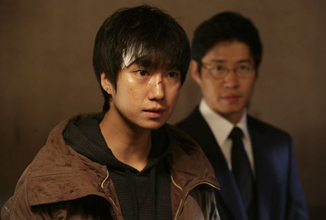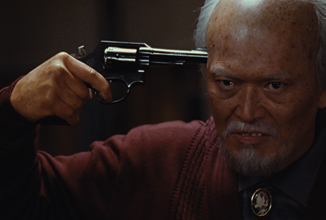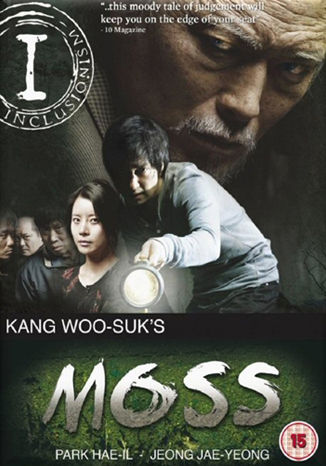
 |
|||||||||||||
Synopsis: Following the death of his father, Yu Mok-hyeong (Heo Joon-ho), Hae-guk (Park Hae-il) travels to the rural village where he lived to settle his estate. No sooner does he arrive than it becomes blatantly clear that he is an unwanted guest and it isn't long before he begins to lock horns with the village inhabitants, led by the sinister Cheon Yong-deok (Jeong Jae-yeong). As Hae-guk's suspicions begin to be raised as to the circumstances surrounding his father's death, he starts to investigate, but as his determination to discover what really happened to Mok-hyeong grows, so does his belief that Yong-deok and his henchmen are deliberately hiding the truth beneath an intricate web of lies and deceit, and the more Hae-guk uncovers, the more he finds himself in mortal danger...
Review: Based on an internet comic of the same name, Moss is far more a character driven film with copious amounts of action and violence also present within the storyline, than vice versa, and while, at its core, it's a fairly simple story, underlying references to power; corruption; revenge and guilt, as well as sin and redemption, create a veritable labyrinth of elements (visually mirrored in the network of tunnels Hae-guk discovers beneath the entire village), ultimately allowing the film to be far more worthy than one might initially imagine.
While Moss' runtime of 163 minutes may make many balk, the narrative is sufficiently involved, with its numerous twists and turns, to (almost) warrant it. However, while the plotline is certainly executed well enough to ensure that it never noticeably drags and manages to hold the attention (often even grippingly so) for the vast majority of the time, the sheer length of the film does raise the question of whether some pruning might have been beneficial, nonetheless, and even though it does have to be said that virtually all of the 'goings on' detailed are, on some level, necessary to the overall storyline and conclusion, the fact that the first half of Moss is a far more taut affair would seem to play this out, suggesting a shortening, rather than a removal, of several scenes.
But by far the biggest problem with the almost two and three quarter hour running time is the fact that by the time an hour and a half has passed, we have been lead to believe that we have learnt enough about the village, the majority of its inhabitants and their history, to be able to largely ascertain the outcome of proceedings and, in fact, the narrative even feels like it is reaching its seemingly inevitable conclusion, but knowing that there's another hour of the film to go simply flags up the fact that there is something pivotal of which we are unaware. Considering the fact that one aspect of the storyline (or sub-plot, if you like) has been referenced several times by this point, but in a far more passing and almost throwaway manner than the depth given to other plot twists, it's pretty obvious that that arc will likely play a major part in the final outcome, for both the storyline and the characters themselves. As such, the game is rather given away, or at least fairly obvious.
Cinematically, Moss is sumptuous, even during the numerous night scenes which also serve, along with those within the underground labyrinth beneath the village, to create a pervading creepiness which, combined with regular hand held camera work, adds a noticeable growing tension to the game of cat and mouse between the main characters. In spite of the darkness (both visually and in terms of narrative), superb cinematography creates a noticeable beauty to both day and night scenes and an eerie musical score accents this yet further.
For most of the running time of Moss, the characters of Yong-deok and Hae-guk would appear to be the most important, with Yong-deok's personality and history detailed in much greater depth than that of any other character. However, the importance of the various supporting roles should not be underestimated, as it is the success of their characterisations that raises the believability of the power and menace wielded by Yong-deok and the vice-like grip with which he controls those around him. I've pretty much lost count of the number of times I've said it in previous reviews, but the performances (from every one of the main cast) are accomplished and nuanced throughout Moss.
However, Jeong Jae-yeong's portrayal of Yong-deok is exemplary to a level far beyond the norm: Equally sinister as Yong-deok in his seventies as he is as a man in his thirties (in flashback sequences), Jeong Jae-yeong’s incredible performance easily raises the level of proceedings virtually every time he appears on screen.
Summary: Based on an internet comic of the same name, Moss’ underlying references to power; corruption; revenge and guilt, as well as sin and redemption, create a veritable labyrinth of elements within the narrative, ultimately allowing the film to be far more worthy than one might initially imagine.
DVD
Details:
|
|||||||||||||
All images © Inclusionism, CJ Entertainment and Cinema Service Review © Paul Quinn |
|||||||||||||
